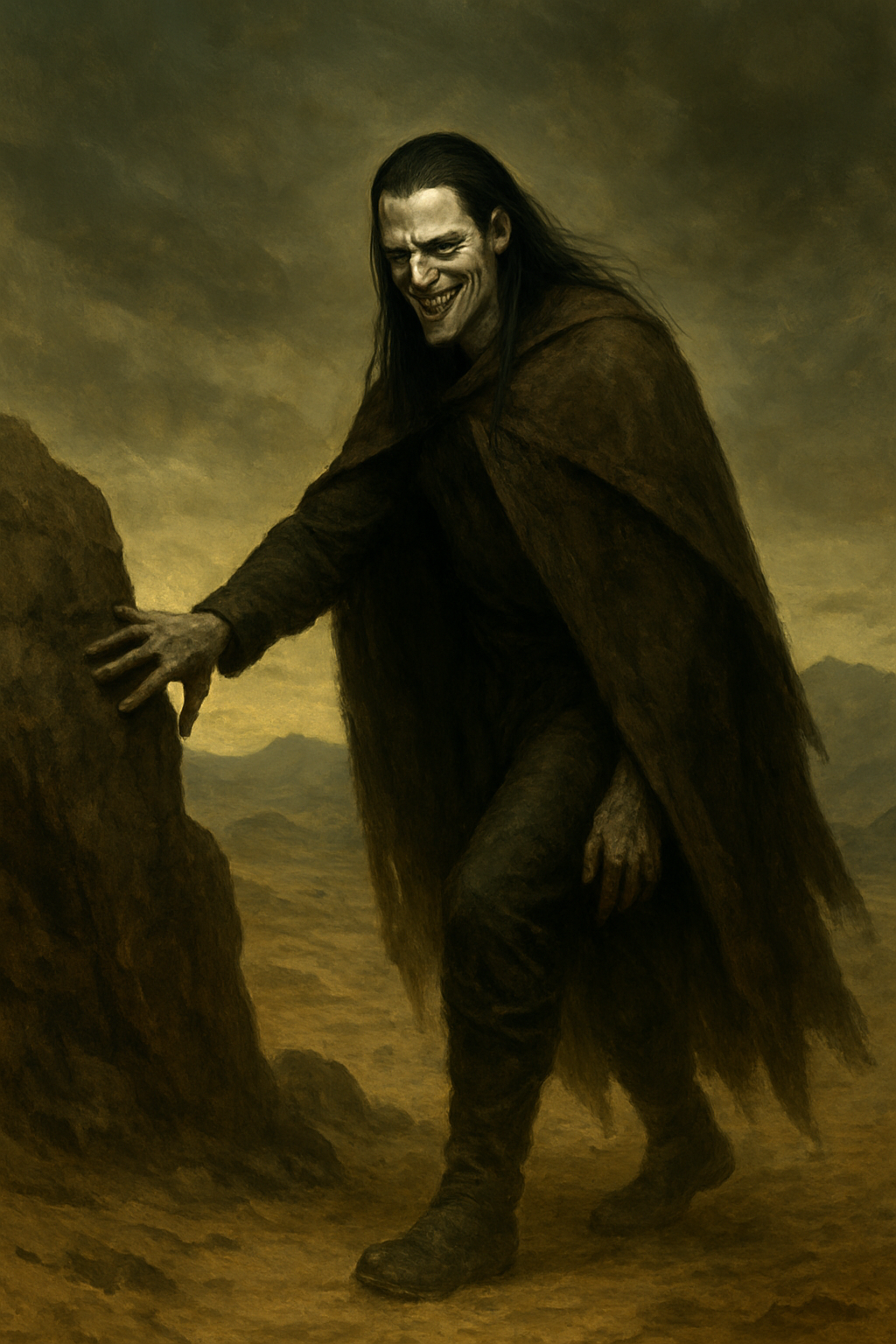He realized he was walking.
His legs moved on their own, with the steady slowness of a body accustomed to fatigue. The wind blew grains of sand against him, but he did not care. He couldn’t remember where he came from. There was no home, no village, no face to place in his memory. Only landscapes. Red mountains, stormy seas, black forests. Broken memories, without names, without time.
He looked at his boots.
They were worn, frayed, encrusted with salt and dried mud. Every stitch was a mile. Every scratch, a story he could not recall. He had traveled far. He felt it in his bones, in the weight of his shoulders, and in the way his mind no longer clung to anything.
Then, as if something inside him had unlocked, he stopped.
He looked at the sky. And he laughed.
A low, deep laugh, as if emerging from a distant place. There was no joy in that sound, no madness. Only awareness. As if he had finally recognized the voice whispering inside him for years, too faint to understand the words.
Now, however, he understood them clearly.
The moment he had waited for his whole life had arrived.
He did not know why. He did not know for what dark design he had been chosen, or by whom. But the certainty was total. He had walked far, wandered like a shadow among men, and now everything was taking shape.
He brought a hand to his forehead, where the skin was rigid, taut, as if something beneath it was pulsing. A smile slowly spread across his lips, wide and wrong. It showed too many teeth, too much confidence.
His figure was imposing: tall, broad-shouldered, arms tense like steel cables beneath the worn fabric of his cloak. His hair was long, straight, black, combed back with obsessive precision. His skin was pale, almost sickly, stretched over his cheeks and tight across his face, where a subtle smile seemed permanently carved.
And those teeth. So white. Too white.
They stood out on his face like a threat. The smile was wide, too wide, never moving gracefully: it always seemed on the verge of revealing something horrible. His eyes, black as coal, were without reflection. Two dry wells, looking at the world as one looks at something already decided to be destroyed.
Kan.
He didn’t know if it was truly his name, but it felt like his. Like an ancient word, written in blood and earth.
It vibrated inside him every time he breathed. Every time he laughed.
And now he was laughing.
“Finally.”
He had always been waiting. He understood it now. All those miles, those sleepless nights, that hunger never sated… They were not survival. They were waiting.
He stopped beside a boulder as large as a wagon, rising from the sand.
He reached out and sank his fingers into the rock as if it were mud.
His nails dug into the granite effortlessly. There was no anger in the gesture. Only demonstration. As if his own flesh no longer obeyed ordinary laws. As if the world around him had become fragile.
He clenched his fingers, lifted the boulder, and threw it into the air. The rock flew for meters, disappearing over a dune with a dull, distant thud announcing its fall.
Kan smiled again. That same, identical, wrong smile.
“Now it begins.”
He said it under his breath, almost tenderly, as if speaking to an old lover. Then he turned and resumed walking.
He took a few more steps, then stopped again.
The air had changed.
There was no wind, no sound, but something in the sand—or beneath it—seemed to hold its breath.
Kan raised his gaze to the dunes behind him. There was no one. Yet he felt it. A barely perceptible tremor, as if invisible eyes were following him. Studying him.
The smile returned, thinner than before.
Then he began to walk again.
Behind him, his footprints vanished immediately in the sand.
As if the world did not want to remember him.

